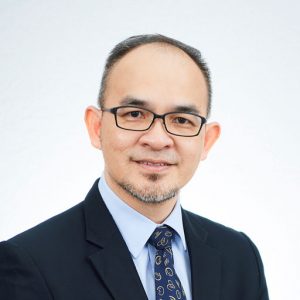Singapore Bible College is an institution of theological education. As a member of the wider academic world at both regional and international levels, the college cannot avoid abiding by scholarly standards and academic requirements. The college must maintain good academic standards and performance so as to fulfil our mandate to provide excellent and holistic theological education for the faithful servants of Jesus Christ.
In academic circles, many scholars adapt the attitude and practice of “publish or perish,” whereby they are always under pressure to produce a continuous stream of research materials in order to maintain their academic standing or to be deemed successful in their career. Many theological institutions, together with their faculty, have fallen into an academic rat race, hardly realizing that this is deeply rooted in a secular or humanistic philosophy of education. Many times, academics may take pride in publishing piles of academic research but end up undermining the mandate to do theology for the church and for the world. This is theological education gone astray!
Last year, I travelled and served in different regions. I witnessed marvellous as well as dangerous things happening in the Christian world. I was alarmed by three challenges I observed in different churches, seminaries and Christian organisations:
Surprisingly, this happens not because of direct attacks by the evil one, but has to do with bread-and-butter issues, our everyday needs; realistically, the money and resources to sustain yourself or your institution. Some seminaries, under financial pressure and facing low enrolment, opt for quick solutions by lowering entry requirements or accepting donations that come with terms and conditions that gradually lead them away from their mission. It is especially during difficult times that we need to have a clear sense of mission to stand firm against the tides of mission drift. Being true to our mission is crucial to individual Christians as well as Christian communities.
For one reason or other, some theological educators and academics elevate certain disciplines or doctrines as the only authentic truth above all others. Some experts believe their own understanding to be unique and deny any views from other scholars. It is common to hear scholars reminding those outside their field, “This is my field; show some respect!” or “This is my area of expertise; I have the final say!” More seriously, the excessive subdivision of disciplines in theological education has resulted in dichotomized and even conflicting views, such as on the roles and functions of scholars and pastors, on theory and practice, on doctrines and ethics, on biblical studies and practical theology. Most regrettably, it has led to the separation of academic pursuit from spiritual formation.
According to philosopher of education Parker J. Palmer, “Functional atheism is an unconscious belief that leads to workaholic behaviour, to burn-out, to stressed and strained and broken relationships, to unhealthy priorities. … Functional atheism is an inner shadow of leaders that leads to dysfunctional behaviour on every level of our lives.” Functional atheism is the path of least resistance, because it is resembles the truth to the extent that it is almost the truth itself. But it is not. Anything that resembles truth but is somehow less than truth is a lie! How may we overcome the above three challenges? The cure is not to create a pointless dichotomy between the “academic” and the “pastoral”, nor to belittle the contributions of rigorous academic research and good scholarly publications. What we need urgently is a governing principle of theological education that unifies different spheres of the human condition and the various theological disciplines. Theologically, that harmonizing and unifying governing principle abides in the incarnate Word, as reflected in 1 John 1:1–10:
- Spiritually, we relate intimately with the
Word of Life, Jesus Christ. - Cognitively, we know well the gospel truth
and share this truth with others. - Relationally, we learn the truth of God and
about ourselves in the fellowship of disciples.
For the above reasons, SBC envisions a holistic theological education which integrates spiritual, cognitive and relational components biblically, theologically and practically, so that the people of God are well equipped for the church and the mission field. Please pray for our faculty and faculty-in-preparation to do better scholarship for the mission and vision of this college!






